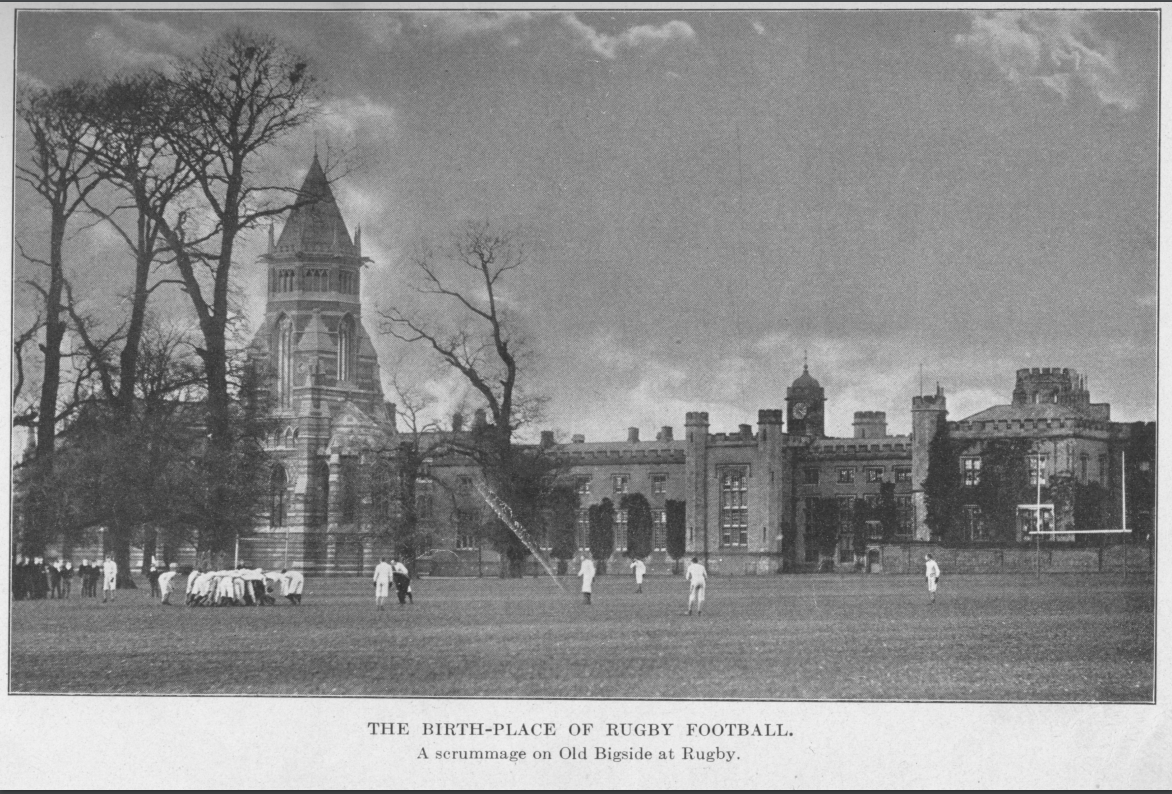English Kicks in some ideas for football
Whatever the inspiration or origin of the game, most modern versions of soccer are believed to have originated from England in the twelfth century. It became so popular in England that the kings of that time (Henry II and Henry IV) actually banned their game of football from being played. The royals believed that this football was taking away interest from the traditional sports of England, such as fencing, archery and jousting.
The game didn’t really begin to take on any consistency of rules and boundaries until it was picked up as a sport in the seven major public schools of England in the early 1800’s. Six of the seven schools were largely playing the same game while the seventh, Rugby School (founded in 1567), was playing a very different version of what was called football then. The other schools moved ahead refining their rules and eventually their game became known as "association football" – or soccer, which was played back then much as it is today.
The Rugby School
The Rugby School went in a different direction. At Rugby School their version differed with the rule that players could hold and carry the ball in their arms. Legend has it that one player in 1823 disregarded the established rules, tucked the ball under his arm, and dashed across the goal of the opponents. By the 1830's, running with the ball at Rugby School was in common use and 18 foot goal posts had been added with a cross-bar at 10 feet above the ground. The innovation of the cross-bar was accompanied by a rule that a goal could only be scored by the ball passing over the bar from a place kick or drop kick. Apparently this was done to make scoring easier from further out and also to avoid the horde of defenders standing in and blocking the goal.

The Rugby School From Parke H. Davis' book: Football: The Intercollegiate Game
Modern day terms of American football had origins from this version of rugby football. Players who were able to "touch down" the ball behind the opponent’s goal line were awarded a "try-at-goal" - the player would make a mark on the goal line and then walk back onto the field of play to a point where a place kick at the goal was possible (a conversion). There was also an "off-your-side" rule used to keep the teams apart. Passing the ball forward was not allowed. By the mid-1860s British schools and universities had taken up Rugby's game and honored the school by giving the "new football" the name of rugby in honor of its founding school.
This form of football was imported to the New World by 17th- and 18th-century colonists. In 1840, a reporter wrote of a Yale University game: "If the truth were told, the game would make the same impression on the public mind as a bullfight. Boys and young men knocked each other down and tore off each others' clothing. Eyes were bunged, faces blackened, much blood was spilt and shirts and coats were torn to rags."
American ingenuity would soon evolve this European game further from its ancient roots. Check back soon for the next excerpt on the game's evolution, part 4, “The History of Football Timeline Continues in the New World.” Right here on PigskinDispatch.com, your place for the good news about football.





